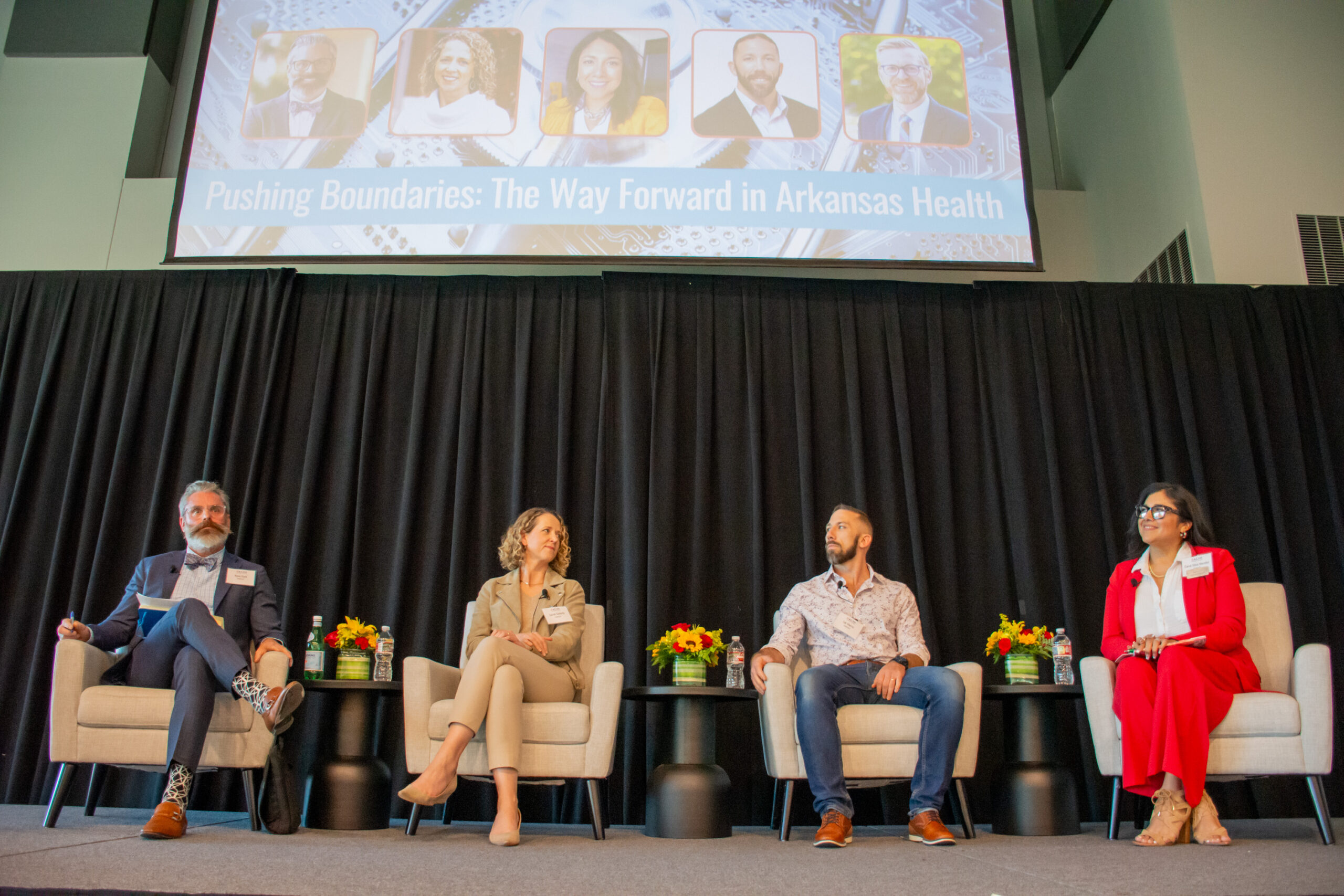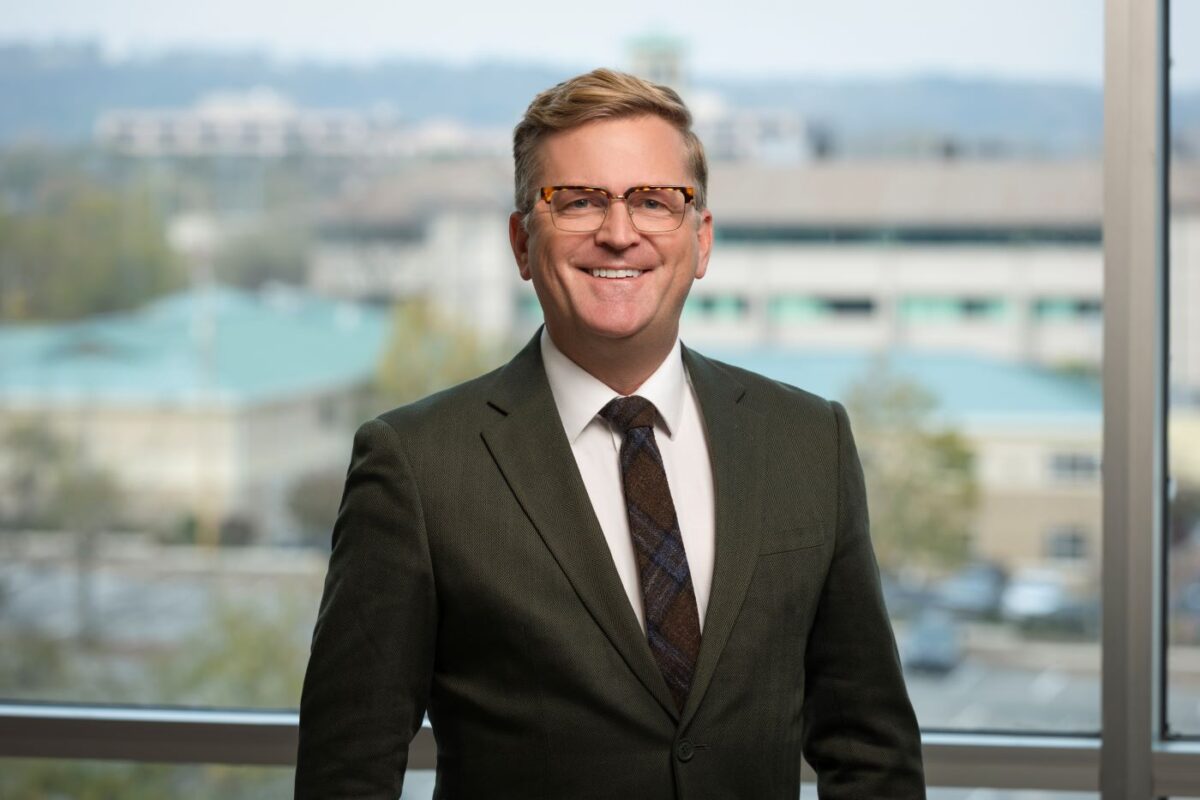Artificial intelligence and other emerging technologies will likely transform health care in the coming years, but is Arkansas well-positioned to adopt and adapt, and will some Arkansans be left behind? These were among the questions considered by leaders from across industries at a recent ACHI-hosted symposium in Fayetteville.

Author
John Lyon
Strategic Communications Manager
Contact
ACHI Communications
501-526-2244
jlyon@achi.net

Titled “Pushing Boundaries: The Way Forward in Arkansas Health,” the panel discussion was part of a symposium exploring the future of health care in Arkansas and marking ACHI’s 25th anniversary as a catalyst for improving the health of Arkansans. Here are some key takeaways from the conversation:
- As a rural state, Arkansas may face challenges in adapting to new technologies. Carol Silva Moralez, president of Upskill NWA, said she is concerned about the state’s ability to keep up with emerging healthcare technologies, given that some rural communities still lack internet access. She also said she worries about how prepared Arkansas’s healthcare educators and students are to use new technologies such as artificial intelligence.
- Regulation of AI should not be driven by fear. Sarah Goforth, executive director of the Office of Entrepreneurship and Innovation at the University of Arkansas, said the integration of AI into health care has the potential to improve efficiency, save time for clinicians, expand services for rural communities, and help retain nurses by easing their workload — but not if the regulatory environment impedes innovation. Fears about blockchain technology led to “a mess” of a regulatory environment that stifled the advancement of that technology in the U.S. compared to the rest of the world, she said. Goforth urged people in health care to stay engaged in policy development to make sure the same thing does not happen with AI.
- No Arkansans should be left behind. Ryan Cork, executive director of the Northwest Arkansas Council’s Healthcare Transformation Division, cautioned against adopting new technologies in a way that excludes Arkansans who cannot afford those technologies and that ultimately widens the divide between the haves and the have-nots.
- We must be careful not to damage public trust. Zak Morris, cofounder of Triton Studios and a former cybersecurity risk expert for Walmart, said the public has a “fragile trust” in health care that must be preserved. Adoption of new technologies could threaten that trust if it is not done in a phased, thoughtful way, he said.
To listen to other conversations from our Fayetteville symposium, and another symposium we held in Little Rock, visit our archive page for The Future of Health Care in Arkansas.






